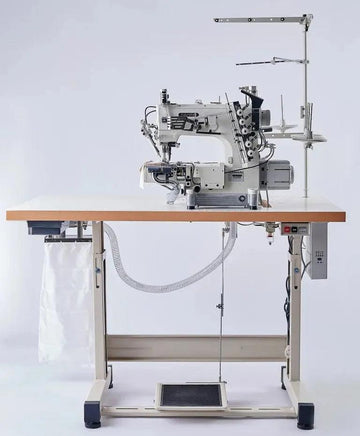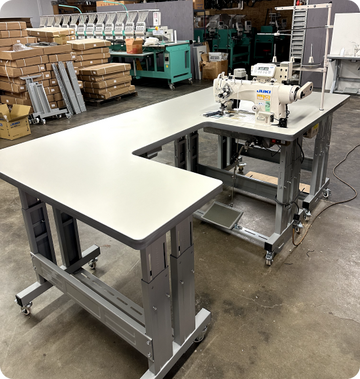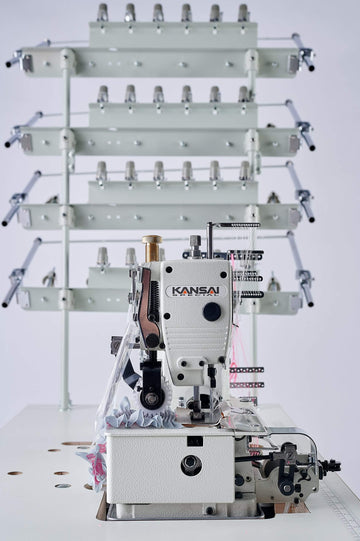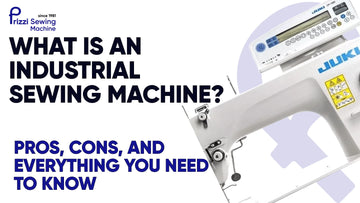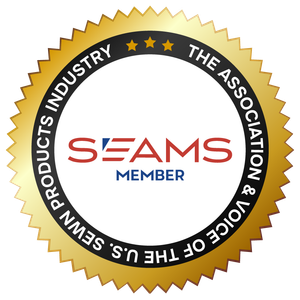If you are researching heavy-duty sewing equipment, you might be asking yourself: what is an industrial sewing machine? Unlike a standard home sewing machine, an industrial sewing machine is built for speed, precision, and durability. These machines are designed for professional garment production, upholstery, leatherwork, and any sewing situation where reliability and consistency are critical.
But what is industrial sewing machine technology exactly, and how does it differ from a domestic machine? Let’s explore.
Industrial Sewing Machine: What Is It?
An industrial sewing machine is a specialized sewing tool used primarily in factories, workshops, and small businesses. Unlike household models that try to offer many features in one, an industrial machine typically focuses on one task only — such as straight stitching, overlocking, or buttonholing.
When asking “what is an industrial sewing machine used for?” the answer is simple: it is used for producing high-quality seams at high speed, with the strength to handle heavy fabrics or large volumes of work.
In short, what is an industrial sewing machine? It is the professional-grade version of a domestic machine, engineered for continuous use and maximum efficiency.
Read Aslo: The Best Table for Juki Sewing Machines: Why Prizzi Stands Out
Features That Define an Industrial Sewing Machine
High Speed: Capable of thousands of stitches per minute, making production faster.
Durability: Built with all-metal parts and a solid frame for heavy use.
Consistency: Produces smooth, even stitches across a wide range of fabrics.
Specialization: Each machine focuses on a specific function, unlike domestic machines that offer zigzag, buttonholes, and decorative stitches all in one.
Motor Power: Servo motors provide both power and fine control, allowing slow precision or fast, continuous sewing.
Ease of Maintenance: Accessible design, self-oiling systems, and fewer plastic components make servicing simpler.
Pros of Industrial Sewing Machines
-
Professional stitch quality – Better straight stitches than most domestic machines.
-
Time-saving – Much faster operation, ideal for business use.
-
Quiet operation – With servo motors, they run smoothly and reduce operator fatigue.
-
Adaptability – Can handle changes in fabric weight and thread type without constant adjustments.
-
Long-term reliability – Designed to last for years under daily heavy use.
Cons of Industrial Sewing Machines
-
Space requirements – Machines are mounted on large tables that cannot easily be stored away.
-
Single purpose – One machine = one stitch type. For example, a straight stitch model won’t zigzag or make buttonholes.
-
Weight – Very heavy and not portable.
-
Parts and needles – May require industrial-grade supplies that aren’t available in local craft stores.
-
Temptation to buy more – Many users find themselves adding additional industrial machines for each sewing function.
Do You Need an Industrial Sewing Machine?
If your sewing is limited to occasional home projects, a domestic machine may be more practical. But if you sew professionally — for example, tailoring, upholstery, or small-scale fashion production — then an industrial model can save time, deliver consistent results, and pay for itself in efficiency.
For those asking “what is an industrial sewing machine good for?” the answer is clear: it’s perfect for businesses, advanced hobbyists, and anyone sewing large volumes or heavy-duty materials.
Alternatives for Small Spaces
Not everyone has the space for a full industrial setup. In such cases, semi-industrial or portable straight-stitch machines can deliver many of the same benefits without the bulk. A popular choice is the Juki TL series, known for its power, precision, and high stitching speed. These machines provide industrial-level performance in a compact, tabletop form — ideal for small studios or home workshops where space is limited.
Conclusion
So, what is an industrial sewing machine? It is a high-performance sewing tool built for one purpose: to produce flawless stitches quickly, reliably, and on a professional scale.
While industrial machines come with trade-offs — size, weight, and limited functions — they are unmatched in stitch quality, speed, and durability. For professionals and serious sewists, the investment often transforms sewing from a time-consuming task into a smooth, efficient process.
Whether you’re searching “what is an industrial sewing machine” or simply wondering “industrial sewing machine what is it?” — the takeaway is this: it’s the right choice when quality, speed, and reliability matter more than versatility.
